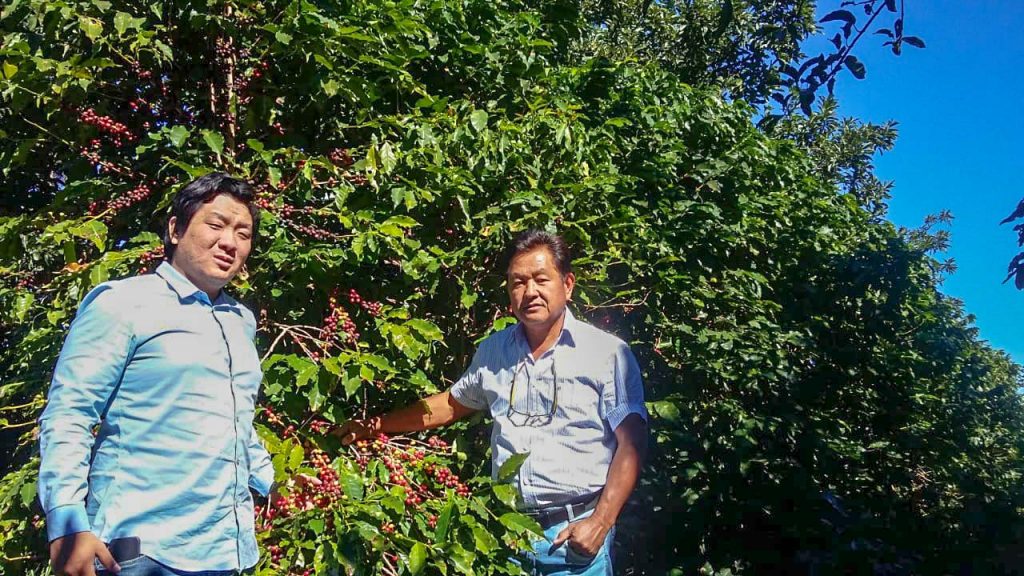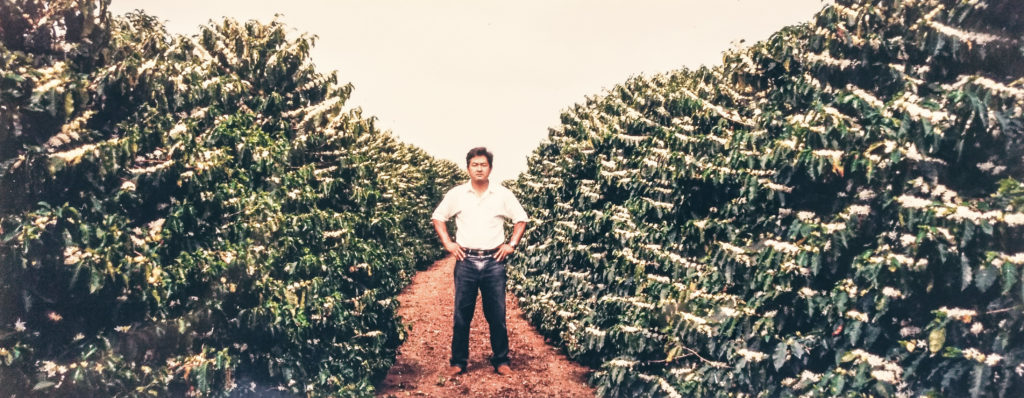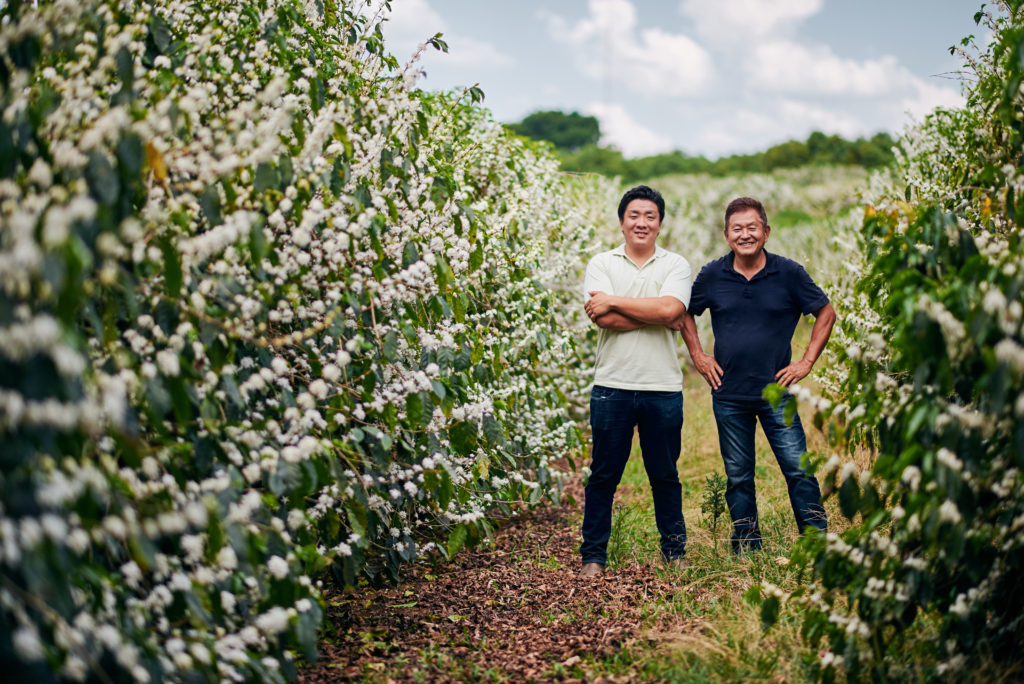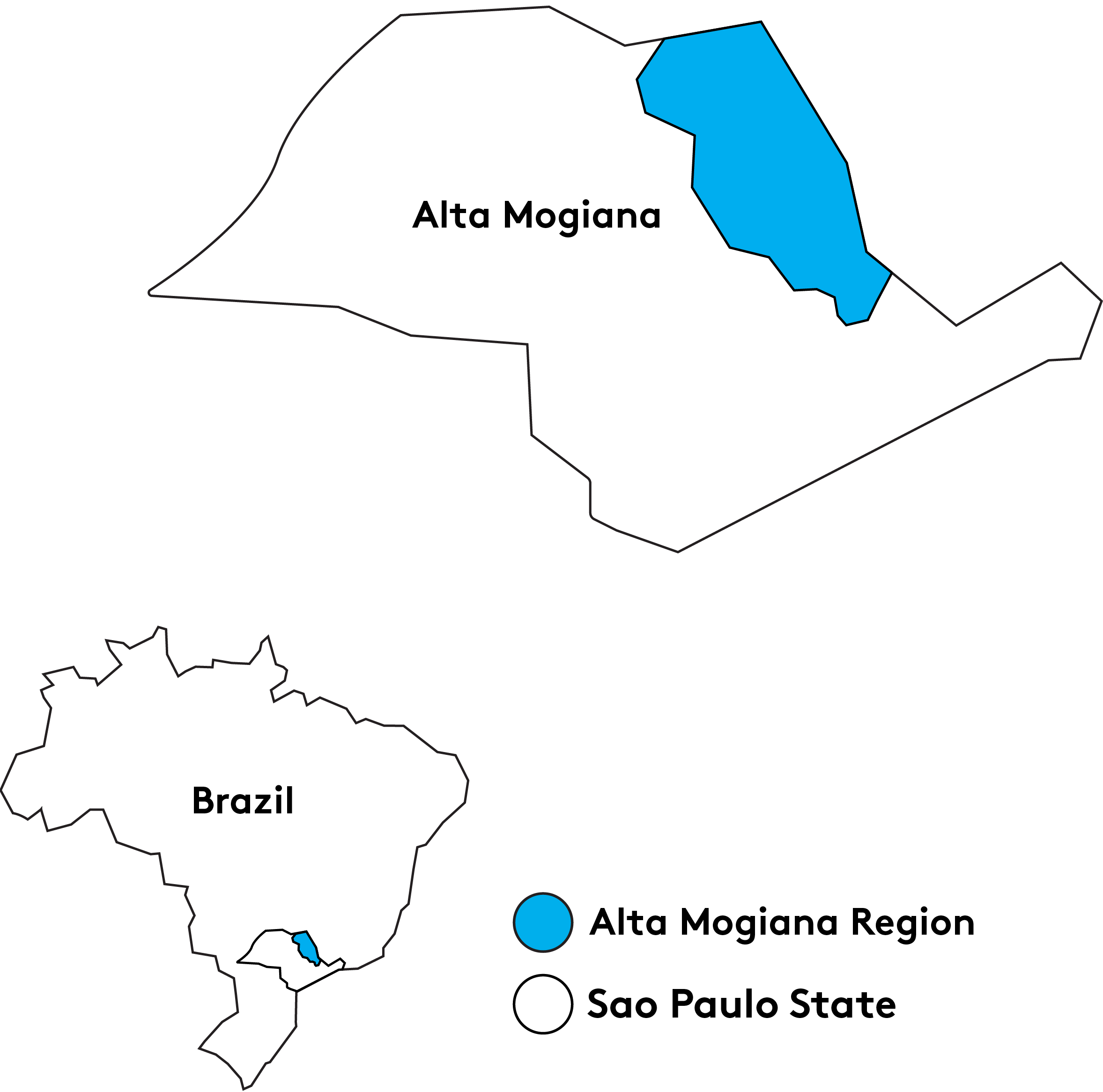The name of Fazenda Minamihara comes from the last name of the Japanese family who arrived to Brazil as immigrants in the 1930s to work with coffee. They began production in the state of Parana, and in 1973 moved to the Cristais Paulista municipality in the Franca region of São Paulo state, which presented several favorable conditions for growing coffee.
Fazenda Minamihara is dedicated to producing high quality coffees, investing in new technologies, and searching for more sustainable methods of production. An efficient process of harvest and post harvest selection separates coffees of the highest quality to offer to clients who value the flavor and originality of their coffee.
Furthermore, the farm does not use toxic pesticides or herbicides, only biological treatments. The production process does not degrade the land and at the same time elevates the quality. Coffee grows under the shade of avocado trees and the farm’s soil is balanced, giving special complexity to the final cup.
Fazenda Minamihara has more than 95 hectares of the farm’s total 150 hectares planted with coffee of the Mundo Novo, Red and Yellow Catuaí, Obatã, Bourbon Amarelo, and Tupi varieties, totaling 34,00 bags of coffee annually.
This lot of Red Obata coffee underwent Natural processing. Red Obata was developed by the Instituto Agronomico (IAC) of Sao Paulo State in Campinas, Brazil as a cross between Timor Hybrid 832/2 and Villa Sarchi CIFC 971/10. The cultivar was released in Brazil in 2000, and introduced in Costa Rica by ICAFE in 2014.



